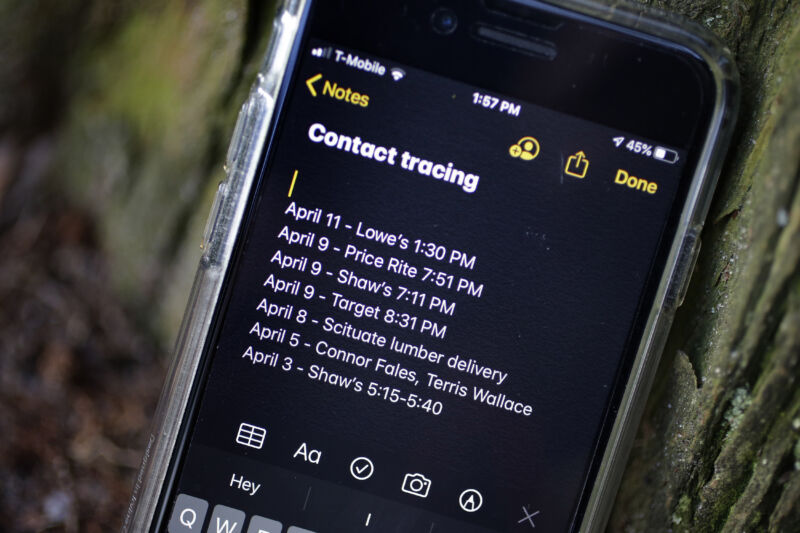
Enlarge / A smartphone belonging to a resident of Cranston, R.I., shows personal notes he made for contact tracing Wednesday, April 15, 2020. (credit: Steven Senne | Los Angeles Times | Getty Images)
After what feels like the longest March and April in human history, hundreds of millions of us are itching to reboot the world and get schools, retail, and every other "non-essential" part of society up and running again. Before we can safely do that, though, we'll need an enormous increase in our ability to perform contact tracing—identifying and contacting everyone who's been in contact with a person infected with COVID-19 so that they in turn can hunker down in quarantine and avoid infecting others.
Contact tracing in a small or medium-size community is one thing, but doing it at scale is quite another. There are roughly 330 million people living in the United States, and reaching them all, even with a small army of trained contact tracers, is a challenge, to say the least. Scale, however, is one thing modern technology excels at, so Apple and Google have proposed a platform that would let everyone's smartphones become part of a massive national contact-tracing network.
Before the platform is even developed, though, it's showing two huge problems. First, billions of phones won't be able to use the tech. And second: even among those who could, a solid half of Americans would refuse to because they don't trust insurers or tech companies with their health data.
No comments:
Post a Comment